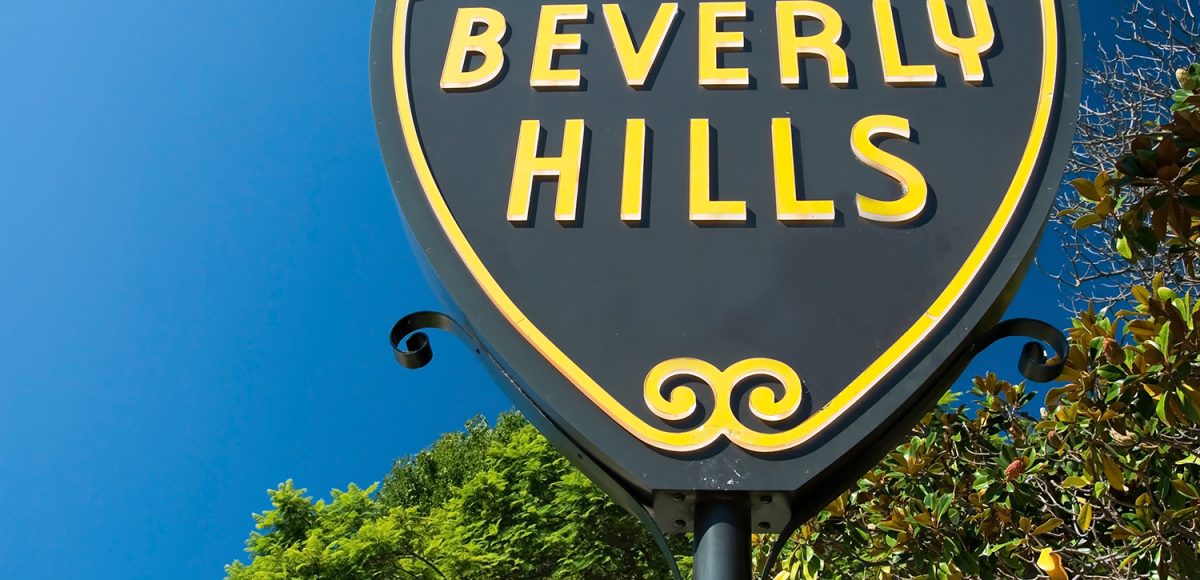The Beverly Hills City Council will discuss extending the traffic closure on North Canon Drive at its September 21 meeting. The cul-de-sac-like closure was implemented in 2018 to facilitate construction on the Metro D Line extension (formerly known as the Purple Line). Since the COVID-19 pandemic, the vehicular dead end has become a vibrant dining space through the city’s OpenBH program. The Council will also consider whether to permit dining tents on North Canon to continue operations and for how long.
The timing of the pandemic with the street closure threw a lifeline to Beverly Hills culinary institution Spago, which struggled as the pandemic decimated business. Expanding into the cul-de-sac with the large dining pavilion has proved vital to business, Spago owner Barbara Lazaroff told the Courier.
“It was a true act of community. I’m deeply thankful for all of the people–the property owners, the business owners, and all the people on the block who worked to make this happen,” she said. “I don’t know what would have happened if we hadn’t had done this. We were deeply struggling.”
The D Line Extension Project promises to connect the westside with downtown, bringing the D Line from its current endpoint at Wilshire Blvd. and Western Ave. to a new station in Westwood. The project is being completed in three sections. Section one includes three new stations (Wilshire/La Brea, Wilshire/Fairfax, and Wilshire/La Cienega) and is expected to begin service in 2023. Section two includes stations at Wilshire/Rodeo and Century City/Constellation and is slated for completion in 2025. Section three connects the line to stations at Wilshire/Westwood and Wilshire/VA Hospital, which Metro expects to open in 2027.
In order to mitigate the impact of construction of the Wilshire and Rodeo portal on the city’s busy Business District, the City Council approved the closure of North Canon and the placement of a sound wall on Wilshire for two to six years. Members of the business community on North Canon advocated for installation of the sound wall, citing concerns about the impact of noise and pollution. Installation of the wall took place in September 2019.
As the virus restricted indoor dining and pushed commerce and recreation outside, the city implemented the OpenBH Program to allow restaurants to operate in the open air. The city’s current OpenBH program allows businesses to temporarily expand their services to adjacent areas such as parking lots and the public right of way by acquiring a Special Event Permit without having to pay applicable fees. The City Council voted May 4 to extend the program to Dec. 31.
Under the program, street closure fees and meter revenue are also waived, with costs related to traffic circle equipment and staff time being absorbed by the city. With the closure of indoor dining and ever-changing Public Health restrictions, OpenBH proved to be a critical lifeline for many restaurants and retailers teetering on the edge of foreclosure.
About the program generally, Lazaroff described it as “an inspired, visionary program” for the city. “It has been a huge boost in aid to restaurants, hotels, boutiques, hairdressers, all sorts of people that were unable to do business, and were truly decimated by the whole COVID situation,” she said.
The COVID-19 pandemic presented an opportunity to the city and businesses around the North Canon cul-de-sac. The design the city adopted for the closure allowed for traffic circulation and parking, but Lazaroff said that they always envisioned using the space for larger events. With the pandemic hobbling indoor dining, the cul-de-sac could become one large dining space.
At the Sept. 21 meeting, the Council will consider how OpenBH will operate after Dec. 31. This includes examining the fees for businesses wishing to continue the program, the process for approval and review, and whether and for how long to continue the dining pavilions on North Canon.







